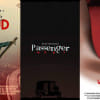Happy Birthday, Tareque Masud
Tareque Masud, the “Cinema Feriwalla” is a familiar name in the country’s film history. The leading Bangladeshi independent filmmaker, film producer, screenwriter and lyricist was born on this very day in the year of 1956.
He grew up in Nurpur village of Faridpur in the then East-Pakistan. He started his education in an Islamic madrasah. There he studied for eight years, till the upheaval brought about by the 9-month Liberation War interrupted his education. This childhood experience had a great deal to do with shaping and forming the great man, humanitarian, and the patriot he was.
Matir Moina-a film made by Tareque Masud, is inspired by the experience of the life of the maker himself as a madrassa going small kid in the setting of unrest in East Pakistan in the late 1960s leading up to Bangladesh’s War of Liberation. It was his first full-length feature film and was released in 2002.This film brought Bangladesh the International Critic's Award at the Cannes Film Festival in 2002. For the first time in the country’s history a Bangladeshi film got nominated for Oscar. It also won the prestigious FIPRESCI Prize for Directors' Fortnight for "its authentic, moving and delicate portrayal of a country struggling for its democratic rights”.
According to Wikipedia, “Matir Moina was received with critical praise and toured the international circuit. It was one of the first Bangladeshi films to be widely circulated and was greeted with enthusiasm for its realistic depiction of life without the melodrama that is prevalent in many other South Asian films.” Elvis Mitchell in The New York Times wrote that it was “One of the finest films of this (2002) year or any other.”
Tareque was involved in the film society movement from his Dhaka University days. His first film was Sonar Beri (1985). Then he made Adam Surat (The Inner Strength). It was a documentary on the Bangladeshi painter SM Sultan, in 1982. His 1995 feature-length documentary on the 1971 Liberation War, Muktir Gaan (Song of Freedom), had record number of audience. This historic film tells the true story of a troupe of singers travelling through the refugee camps and war zones during 1971. The film blends documentary and fictional genres in a musical structure. It tells the story of the birth of a nation and the ideals of secularism and tolerance on which it was founded. The filmmaker couple, Tareque and Catherine Masud, combined footage of the cultural troupe and their activities, shot by American filmmaker Lear Levin in 71, with collected historic footages and purchased additional footages from various international sources to craft the 'Muktir Gaan' (Song of Freedom).
He made many other films on the liberation war of Bangladesh, including Muktir Kotha (Words of Freedom, 1999), Narir Kotha (Women and War, 2000) and Naroshundor (The Barbershop, 2009). Muktir Kotha depicts this great filmmaker’s understanding and acceptance of history. The participation and contribution of Bangalee women and men along with the aboriginal people of the land is portrayed in this very film like never before.
Tareque was a founding member of Bangladesh Short Film Forum in 1986 which was the leading platform for independent filmmakers in Bangladesh. He also organised the country's first International Short and Documentary Film Festival in the year of 1988. This festival, first organised by Masud, is celebrated biannually to this day.
He was known as the "Cinema Feriwalla" because of the way he showed his films, touring remote towns and villages throughout the country with his mobile projection unit. Masud took a challenge to release his 2010 film “Runaway” in divisional cities before releasing it in Dhaka. In that regard, he himself travelled to one city from another with the film, which being based on the influences on a young boy of radical religious teachings, has educational qualities.
His wife, American-born film editor Catherine Masud, was both his creative and life partner. They met at the time he was completing work on Adam Surat and spent the next two decades making films together through their production house Audiovision.
Masud died in a road accident on August 13, 2011 while returning to Dhaka from Manikganj on the Dhaka-Aricha highway after visiting a shooting location. He along with the other passengers was travelling for choosing shooting locations for his new film Kagojer Phool (The Paper Flower), filming of which could never begin. Mishuk Munier, his long time friend and co-worker also died in the accident. The coffins of Masud and Munier were laid out in front of the Central Shaheed Minar in Dhaka on 14 August. Thousands of people came there to pay their last respects. Since his death, Catherine has established the Tareque Masud Memorial Trust. It is dedicated to the task of archiving and memorialising Masud's work through publications, educational projects, screening programmes, and the completion of their unfinished oeuvre.
Tareque Masud posthumously received the Ekushey Padak in 2012, the highest civilian award of Bangladesh. In 2013, New York University Asian Pacific American Institute, and South Asia Solidarity Initiative, hosted the first North American retrospective of his films.
Today would have been the 60th birthday of this visionary filmmaker. We remember him with great reverence.

 For all latest news, follow The Daily Star's Google News channel.
For all latest news, follow The Daily Star's Google News channel. 








Comments